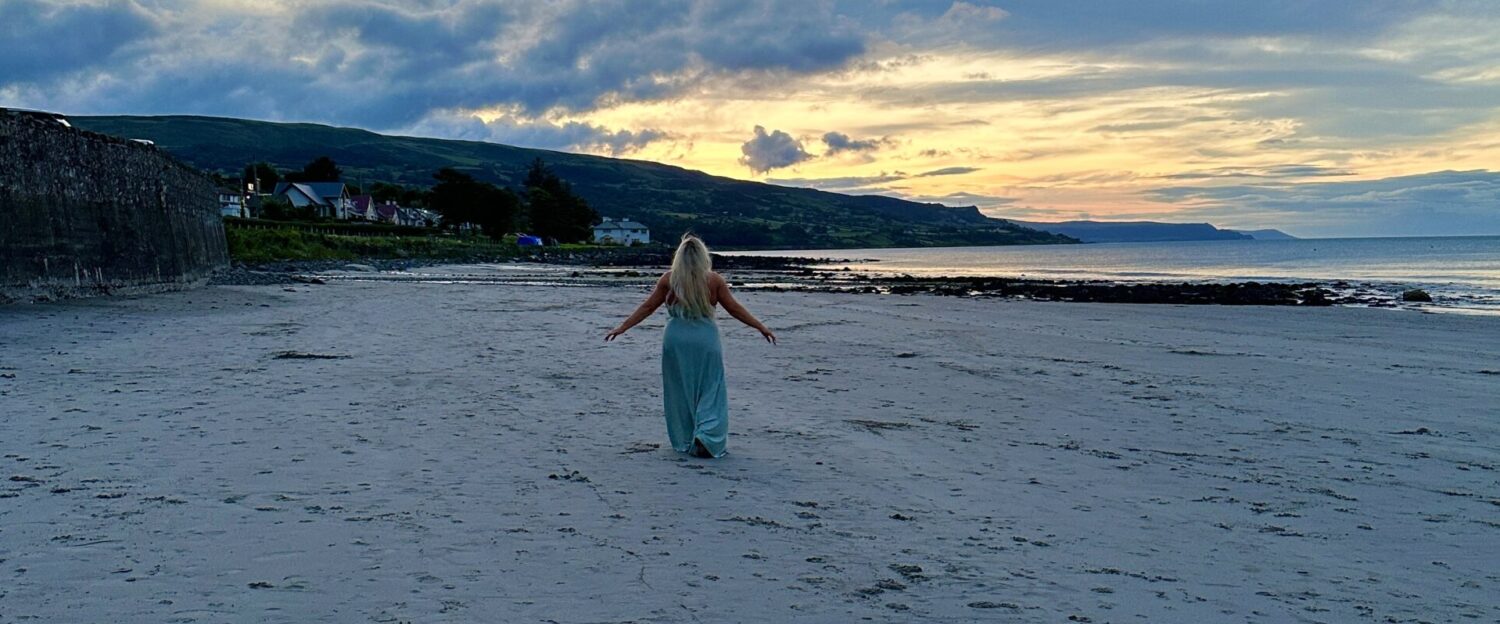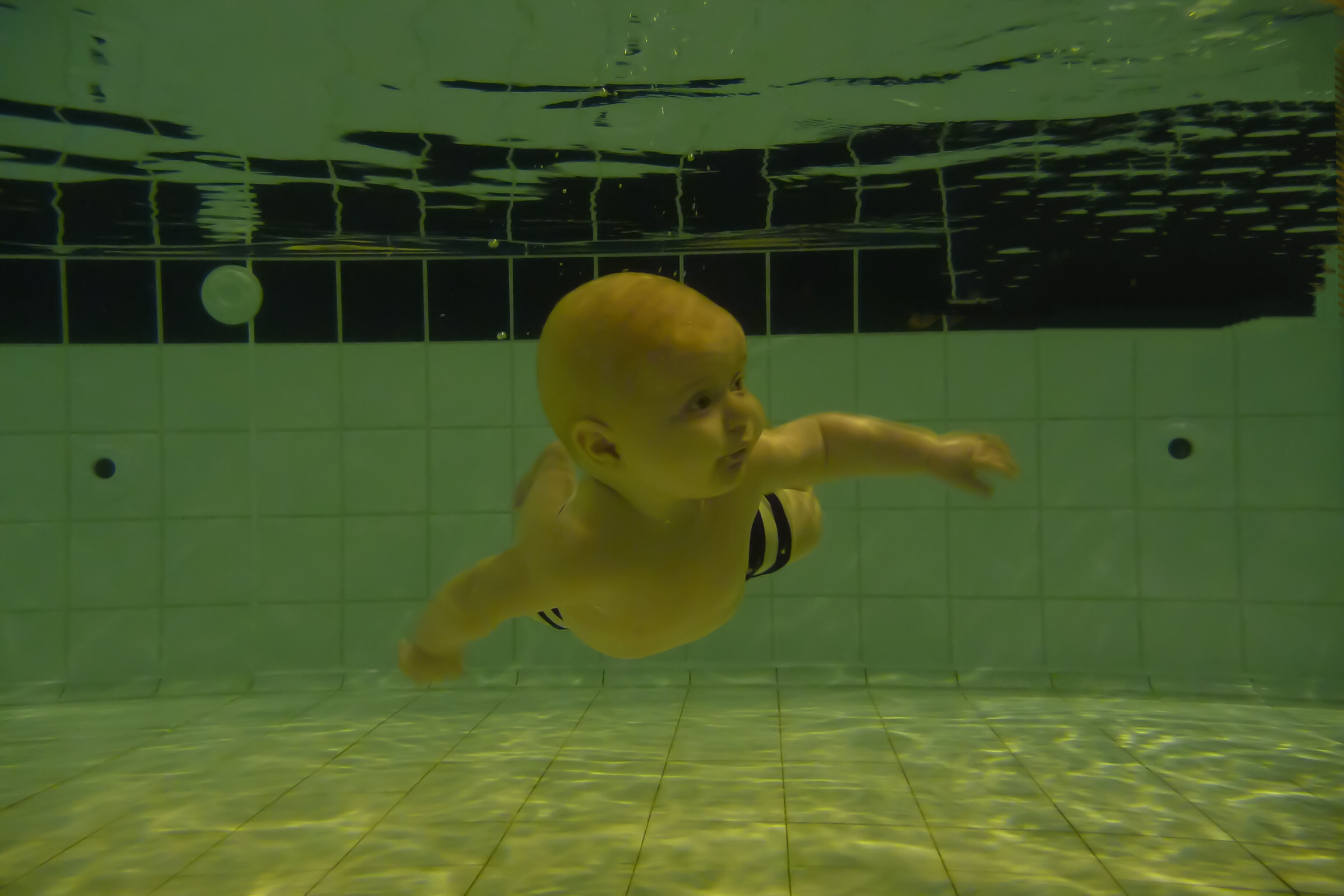My little girl didn’t learn how to swim until she was 7 years old and she was terrified of the water, luckily she did take to her lessons like a duck to water but I didn’t want to take the chance with baby number two, so that’s when I signed us up for Aquababies and our journey into the land of underwater swimming began…..
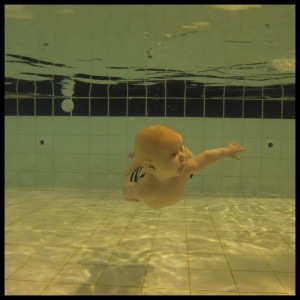 After spending 9 months in the womb suspended in fluid, it’s not surprising your baby has a natural affinity for water and floating in a warm pool will feel familiar to them, though if you leave it too long, as babies get older they start to lose confidence and may develop a fear of water so getting your baby used to water early in their life makes sense from a safety point of view. Babies are all born with natural reflexes and the ability to breath underwater known as the laryngeal reflux (simply the gag reflex)
After spending 9 months in the womb suspended in fluid, it’s not surprising your baby has a natural affinity for water and floating in a warm pool will feel familiar to them, though if you leave it too long, as babies get older they start to lose confidence and may develop a fear of water so getting your baby used to water early in their life makes sense from a safety point of view. Babies are all born with natural reflexes and the ability to breath underwater known as the laryngeal reflux (simply the gag reflex) 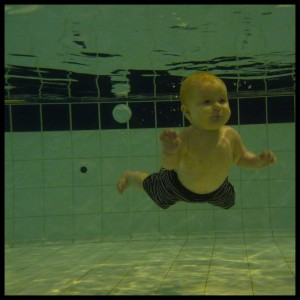 which means when it feels water on it’s face, a baby will instinctively hold its breath to avoid inhaling water, which gives them a fantastic start to becoming independent little swimmers.
which means when it feels water on it’s face, a baby will instinctively hold its breath to avoid inhaling water, which gives them a fantastic start to becoming independent little swimmers.
It is best to wait at least 6 weeks postnatally as there is a chance you could pick up an infection before then. Your baby does not need to wait to be immunised before going swimming, but with the demands of being a new parent, swimming in those first few weeks would be the last thing on your mind, but once you are feeling a little bit recovered and settled into a routine you will find that getting out socialising with other mums and babies in the pool is great for lifting your mood and it’s also a great form of exercise especially after the demands of childbirth that your body has been put through!
Cameron was four months old when we started our lessons as prior to that, he had been ill and undergoing his surgery so I found it was the perfect age for us as he was also supporting his neck well, he was more aware of his surroundings and was going a little longer between feeds and naps.
We started off with a 6 week foundation course that introduces baby to techniques of early swimming skills, independence, water confidence and breath control. Cameron is being trained through repetition to control his breathing before he goes underwater 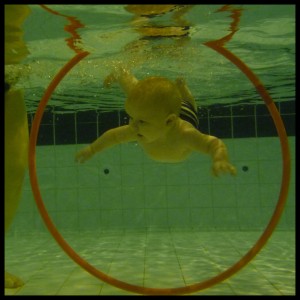 (aquatic breathing).
(aquatic breathing). 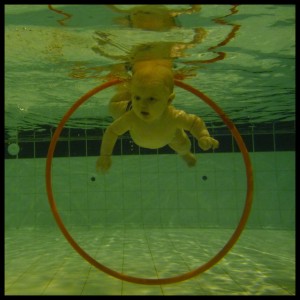 We have learnt so many different activities and exercises that build and strengthen on your baby’s natural swimming reflexes and aid motor control and physical development. I have found this to be fantastic for helping Cameron recover from his surgery as he was unable to have any tummy time for 12 weeks, being in the water enabled him to continue to be active and use all those motor skills in the water that he was unable to use at home.
We have learnt so many different activities and exercises that build and strengthen on your baby’s natural swimming reflexes and aid motor control and physical development. I have found this to be fantastic for helping Cameron recover from his surgery as he was unable to have any tummy time for 12 weeks, being in the water enabled him to continue to be active and use all those motor skills in the water that he was unable to use at home.
After completing the foundation course we have progressed onto learning early swim skills and key safety techniques which is something every parent should consider. By teaching your baby verbal cues on when they have your attention to safely enter the water and how to turn in the water and get themselves to safety should they fall in, is a total peace of mind. God forbid your baby should ever fall into a pool by themselves on holiday, but if your baby has been taught how to control their body and breathing in the water and swim to safety, really is a life skill that is priceless.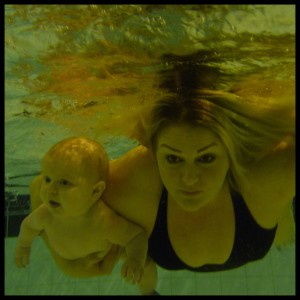
Cameron is a total water baby and loving his submersions and swimming under water. He is now able to independently hold onto floats and kick himself about in the water all in preparation for swimming. We have so much fun in our lessons together and it creates such a close bond, plus I get a little exercise too when i’m swimming with him on my tummy, back or underwater. You would be surprised at how much strength it takes to do a few lengths with a baby on board!
A few key things to remember before you take the plunge:
- If your baby is under 6 months old then only take him to a pool that is heated to about 32 degrees, most public pools are too cold for a young baby. Also limit your time in the pool to a maximum of 30 minutes, however, if your baby shivers before this get them out of the pool immediately.
- You will need some swim nappies, disposables are great and used alongside a swimsuit with built-in swim nappy acts as a double barrier against any accidents in the pool.
- Bring a couple of towels and have one at the poolside, preferably with a hood, to wrap your baby up as soon as you leave the pool.
- Some flipflops to wear as poolside can be very slippy carrying your baby.
- A baby hat to wear going home to make sure their ears are covered as you don’t want them to catch a cold.
- Snacks if your baby has started solids or a bottle if not breastfeeding as your baby will be hungry afterwards.
If you are interested in learning more about swimming with your baby and classes, contact your local swimming pool who will be able to advise of what is available in your area.
Have fun hot mammas, I hope you and your little waterbabies adventures go swimmingly.
Xx

